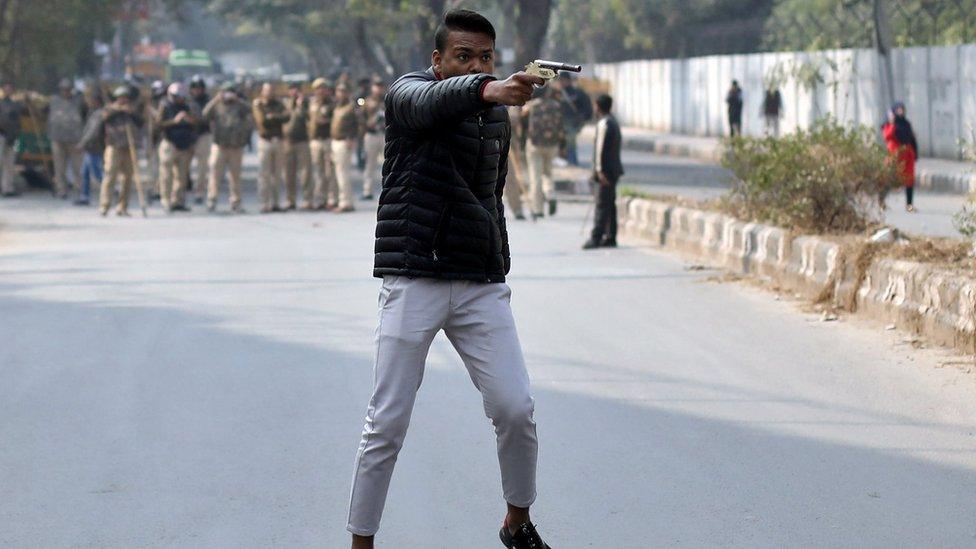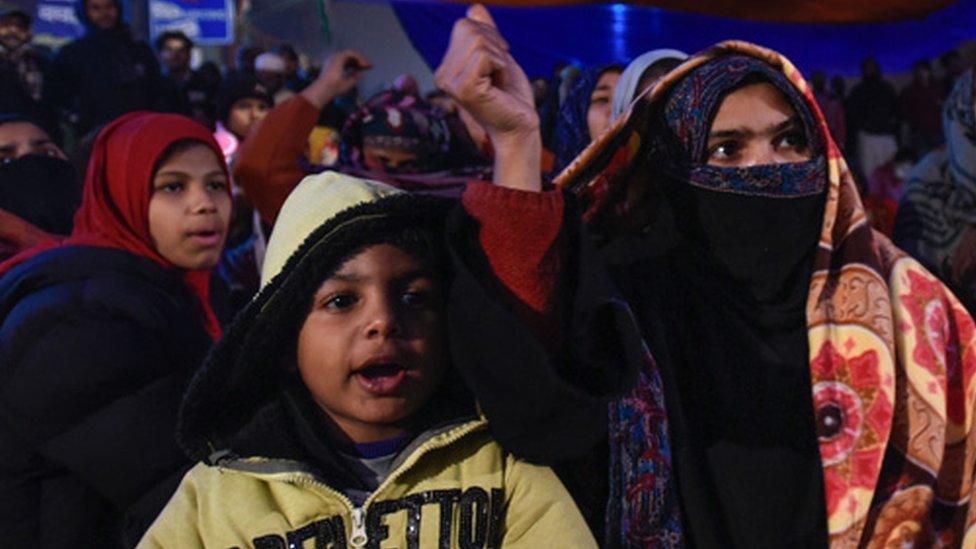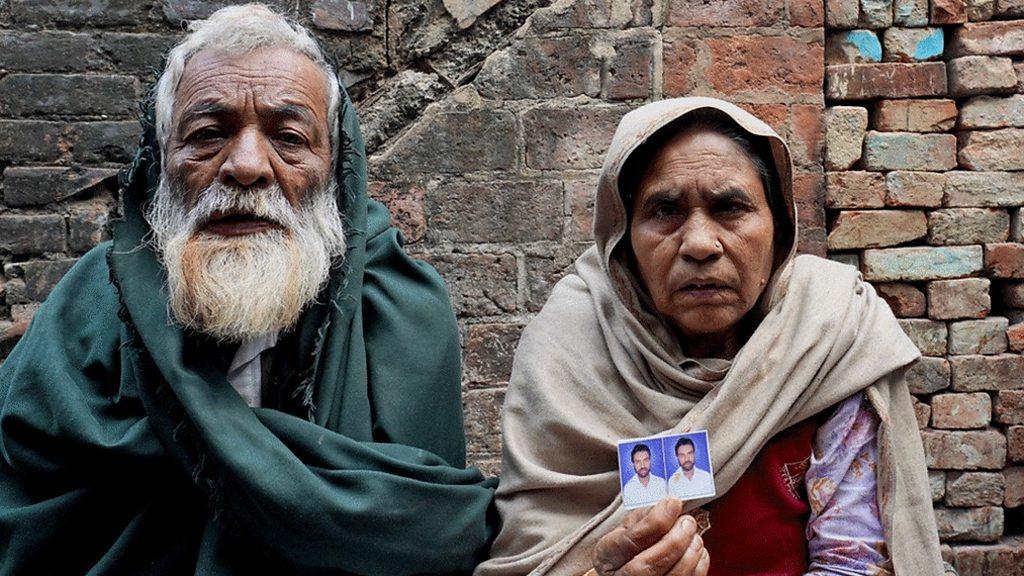Jamia Millia: Indian student injured as man fires at university protest
- Published

The man was taunting students protesting against a controversial citizenship law
A student has been shot after a man opened fire during a protest against a controversial citizenship law in the Indian capital, Delhi.
Police arrested the gunman outside the city's prestigious Jamia Millia Islamia university.
Shootings inside educational institutes are not a common occurrence in India.
A video showed the man brandishing a gun and asking the protesting students if they really wanted "azadi" or "freedom".
"Azadi" has become a controversial word as it is often invoked by Kashmiris opposed to Indian rule. However, protesters outside Kashmir who use the term say it can also mean freedom from issues such as hunger and poverty.
The injured student, from Jamia Millia Islamia university, reportedly was shot in the hand and has been taken to hospital for treatment.
Jamia Millia Islamia university students have been at the forefront of protests against India's Citizenship Amendment Act (CAA), which critics say discriminates against Muslims.
An anti-CAA protest march by its students in December ended in violence and clashes with the police. Subsequent footage of police forcibly entering the campus premises, damaging property and beating students led to a wave of fresh protests against the law across the country, many of them in solidarity with Jamia.
'Our son was shot dead by police'
Thursday's incident comes days after a MP from India's ruling Bharatiya Janata Party (BJP) was censured for inciting a crowd in Delhi to shout "shoot the traitors" while railing against a peaceful anti-CAA protest.
In the northern state of Uttar Pradesh, where 30 people were killed, police have been accused of brutality. A judge in the state's Bijnor district has since strongly censured police for their actions, as he granted bail to 48 mostly Muslim protesters.
What is the CAA?
The act offers amnesty to non-Muslim illegal immigrants from three neighbouring Muslim-majority countries, amending India's 64-year-old citizenship law, which currently prohibits illegal migrants from becoming Indian citizens.
It also speeds up the path to Indian citizenship for members of six religious communities - Hindu, Sikh, Buddhist, Jain, Parsi and Christian - if they can prove they are from Pakistan, Afghanistan or Bangladesh. They will now only have to live or work in India for six years - instead of 11 years - before becoming eligible to apply for citizenship.
Under the CAA people holding Overseas Citizen of India (OCI) cards could lose their right to live and work in India indefinitely if they break local laws, no matter how minor the offence.
Several petitions argue that the law is illegal, claiming that it grants citizenship on the basis of religion - which goes against the country's secular values enshrined in its constitution. Those challenging it include political parties, civil society and Muslim groups.
Adding to the fears is a government pledge to carry out a widespread exercise to weed out "infiltrators" from neighbouring countries. Many Muslim citizens fear they could be made stateless, given that the exercise relies on extensive documentation to prove their ancestors lived in India.
The government has defended the law, saying it will give sanctuary to people fleeing religious persecution and have vowed that it will not be rolled back.
- Published29 January 2020

- Published28 December 2019
